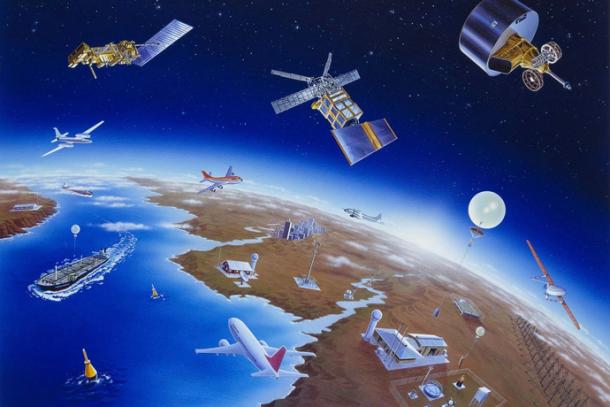The WMO is calling on governments around the world to protect radio frequencies allocated to Earth observation services which are vital for weather forecasts and long-term climate change monitoring.
Decisions with major repercussions for Earth exploration, environmental monitoring and meteorological satellite operation will be made at the World Radiocommunication Conference from 28 October – 22 November.
There is growing alarm within the meteorological sector that the increasing competition for bandwidths, including from the next-generation mobile phone data service, 5G, may be at the detriment of established applications relating to Earth observation satellites, radiosondes, aircraft, radar and other observing systems.
“WMO obviously does not wish to hamper the rollout of new telecommunication technologies such as 5G. But we are concerned that they should not encroach on the frequencies used by life-saving applications such as weather prediction,” said Eric Allaix, chair of the WMO Steering Group on Radio Frequency Coordination.
“There needs to be a balance between short term commercial and technological interests and long-term global well-being and safety. We should not run the risk of reversing many of the gains in our warning services for natural hazards and thus potentially increasing loss of life and property,” added Allaix.
Read the full story here.



